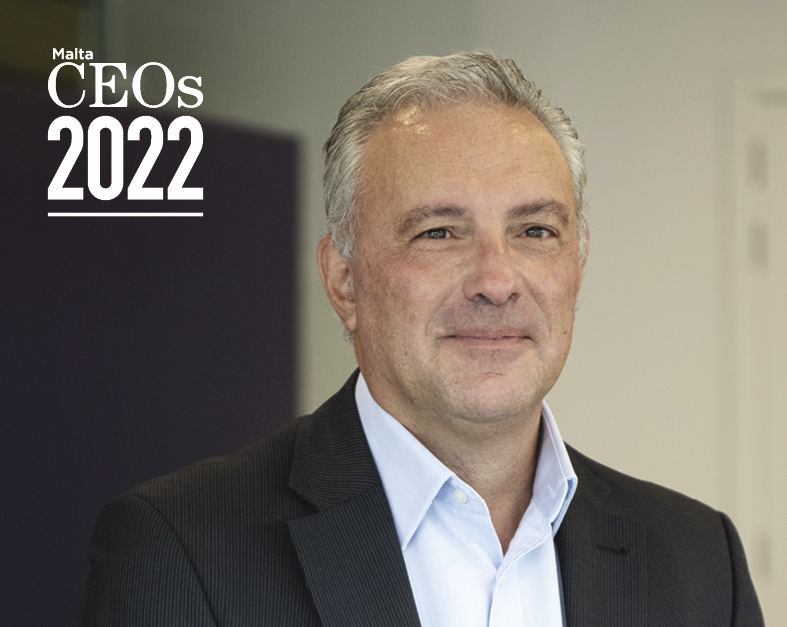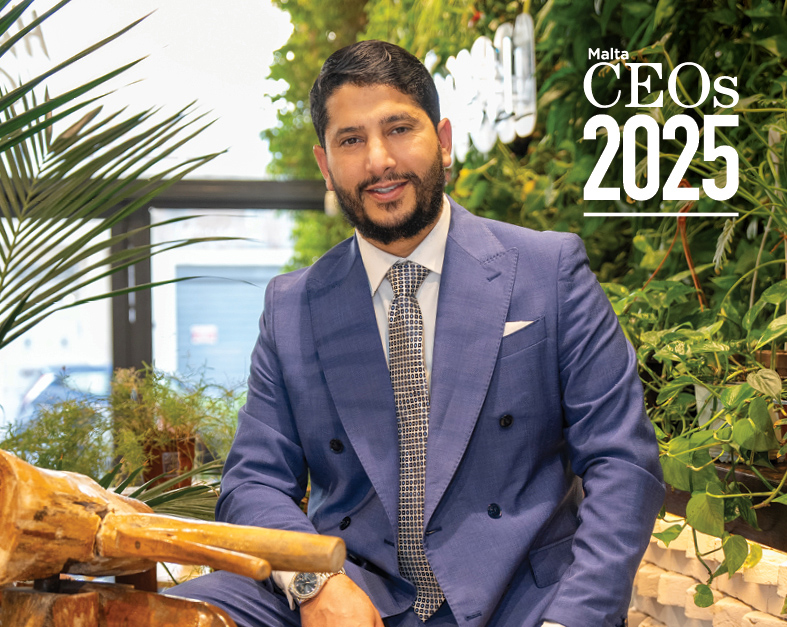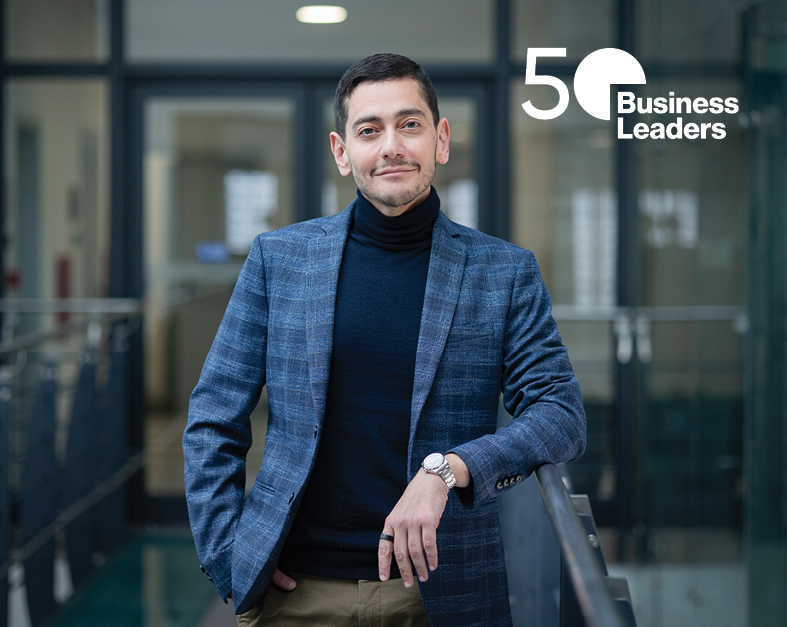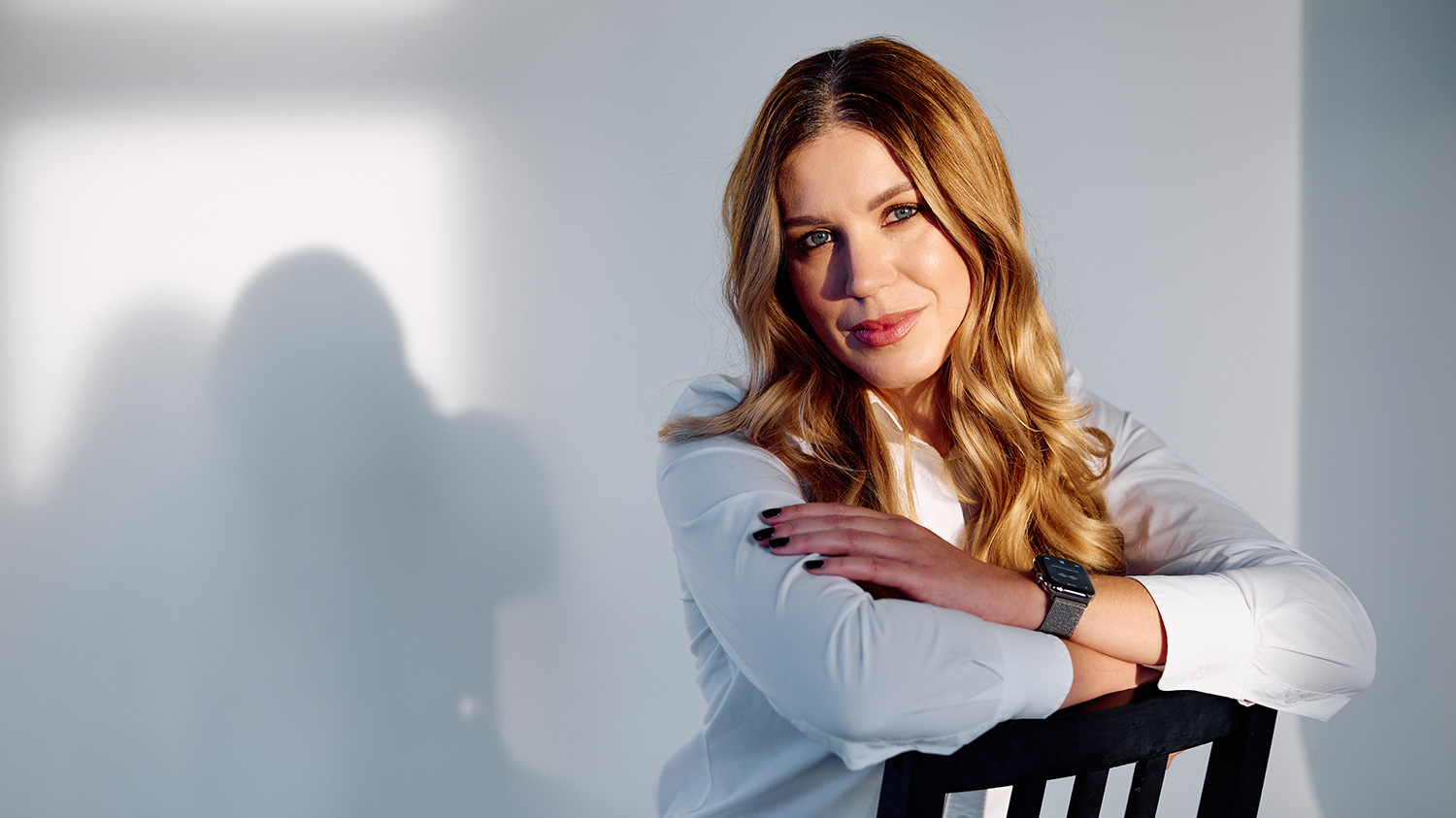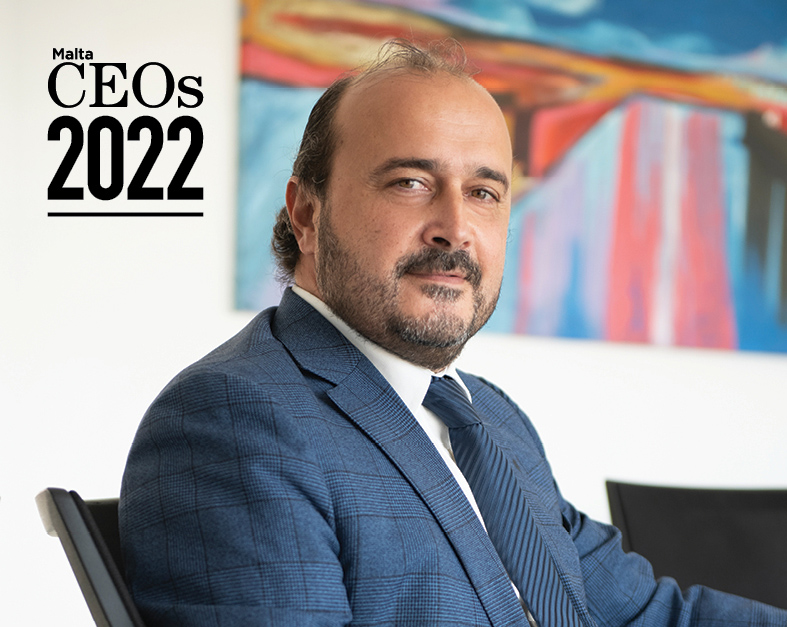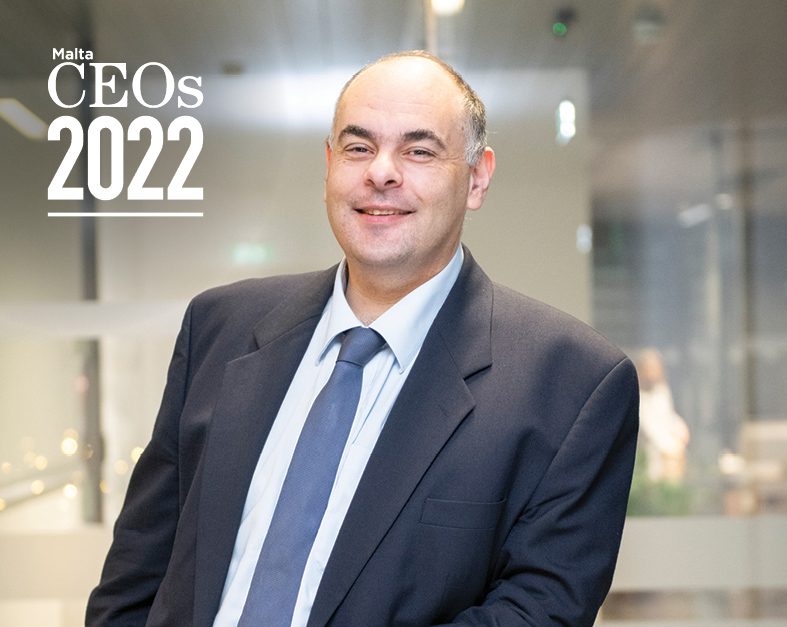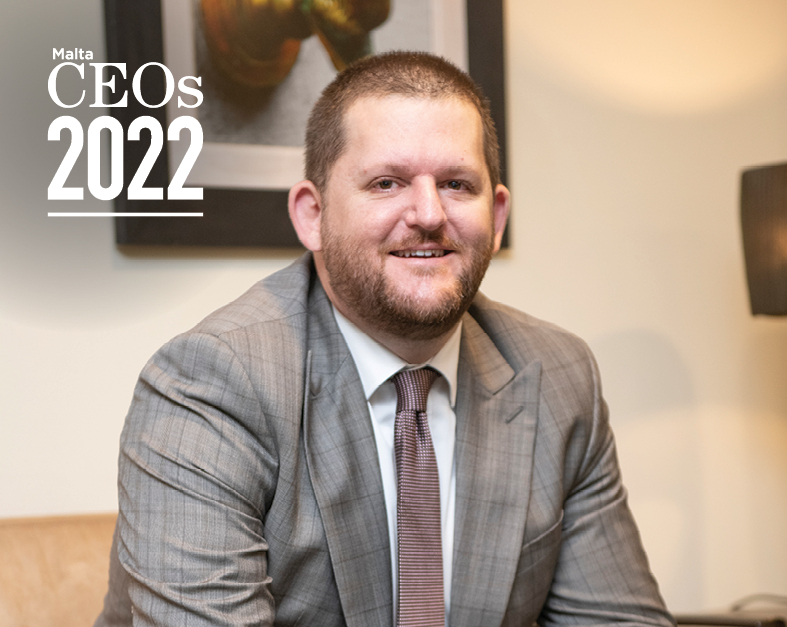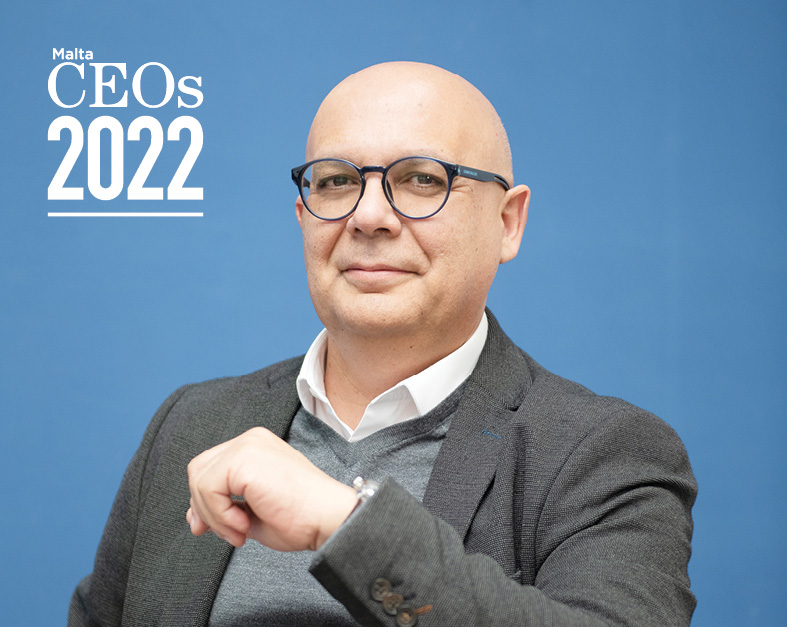With over four decades of corporate experience under his belt, PG Group plc CEO Charles Borg has the business acumen to see the investment company grow from strength to strength. Known for its supermarkets (PAMA in Mosta and PAVI in Qormi), as well as the Zara franchise in Malta, Charles explains how the key to PG Group’s success is its ability to remain nimble.
“A leader needs to ensure continuity,” PG Group plc CEO Charles Borg insists. And Charles certainly knows a thing or two about longevity, having been in the corporate and financial services sectors for over 40 years, sitting on various Boards in that time. “I spent the first 35 years of my career at one of Malta’s systemically important banks – starting out as a cashier and working my way up to Chief Executive – which is quite a few rungs up the ladder,” Charles smiles.

PG Group is the investment group behind a number of Malta’s most successful ventures including the landmark PAMA shopping complex in Mosta, PAVI supermarket in Qormi and the Zara franchise in Malta. Charles has been the CEO for six years and, looking back, he underscores his approach to ensure the company’s continued prosperity. “I ensure that principal objectives are met and that the Board’s plans are delivered on time and well within budget. I oversee the management of the team – guiding them, giving them flexibility and coaching them so they are able to make any necessary decisions on their own.”
To this end, Charles strongly believes in motivating others to become the best they can be. “One of the main roles of a CEO is to train two or three people to replace them. This is critically important. The responsibility of a leader is to provide stability in this way. When I was working at the bank, I was told by the Chairman at the time that there are three important axioms to follow in business. This is one of them. The other two are to always make the right decision – not the easy one, since this will come back to haunt you – and to create your own team, give them your vision, and the tools and empowerment to achieve it. Ultimately the firm’s success will be their achievement and not yours,” Charles says.
The CEO also has a gamut of achievements under his belt. His most recent was taking PG Group plc public, after years as a family firm, having been established by Paul Gauci in 1987. “It was a successful IPO. Mr Gauci sold 25 per cent of his shares and also gave an amount to charity. Since this shift three years ago, the business has grown. My shareholders are happy as they’ve seen dividends every six months, which is a significant result,” he says. “You’re always going to have a balance of the good and the bad. Although there are disappointments along the way, you have to take them as they come, learn from them and move on,” he insists.
Charles thrives on sharing these experiences with others and mentoring protégés to make sure that “people learn from my mistakes.” It is this element of the work, he says, that gives him the most enjoyment and satisfaction. “Of course, the toughest aspect is to find the right people
I can guide. This is not just a problem here in Malta, but an issue the entire EU is contending with – good people do not grow on trees and, today, there are a lot of opportunities and mobility, so recruiting is a challenge across all industries,” he says. “A successful leader has to have the right people around them; you then need to give them the tools and delegate responsibility. If you do so, they will perform.”
Charles credits the staff working for PG Group plc for the company’s ability to stay ahead of the game throughout the past 18 months, as the COVID-19 pandemic shuttered nonessential stores and impacted supermarkets. There were strains in the supply chain and increased demand for certain products, as well as the necessity for online channels. “Companies need to react quickly and, unless you react to the new realities, you’re left by the wayside, so you need to be flexible in your operations. This is what we did. And the market rewarded us for it,” the CEO asserts.

By the end of April 2021, the company registered its strongest performance since its inception in 2016, with revenues exceeding past returns. “This was notwithstanding the fact that we had waived the rent for shops to which we lease retail space in shopping centres of ours that had been forced to close, for instance. The firm was, therefore, missing that income,” Charles explains.
Like many, the outlets shifted much of their operations online but, as Charles points out, this still resulted in a hit to the bottom line. “We made an investment in digital, even though it gives us lower margins. There are more expenses to prepare the order – since our people need to spend more time packaging and delivering items – and we do not charge differently, so these expenses are absorbed by us. In addition, when people come to the store, there is a lot of impulse buying and this does not happen as much online,” the CEO continues.
Yet, the firm’s decision to continue operating differently paid dividends. “We had frontline staff serving our clients – to whom we’re extremely grateful – and these past two years have reminded us of the value of customer relationships, as well as the solidarity that exists between us at PG Group. I think we came out of this crisis stronger than ever before,” he says.
At the beginning of last year, the Group implemented a new, more robust IT platform, integrating the supermarkets and finance departments, while also improving operational efficiency, the CEO attests. The business has learnt “to change the customer experience to meet the necessities of our clients. Today, clients have very little time and they want to limit the hours spent shopping for groceries. So, at the end of last year, we launched a mobile app, which allows customers to shop online much more easily, while also accessing offers on product lines that they might have seen in store.”
Looking more broadly towards the future of the retail and supermarket industry, Charles predicts that the ability to adapt to changing imperatives is going to be fundamental if businesses want to survive. “Just look at the main high streets in Europe – outlets have changed and you will see a much-reduced brand presence. The situation will continue to be in flux, so unless firms react to the new realities, and push their businesses into new avenues, they will suffer,” he asserts. He cites the example of Zara International, which has managed to integrate its digital and brick-and-mortar offerings. “In the case of Zara, online and in-store are not separate and the relationship between the two is critical,” he states, explaining how customers are allowed to buy online within a store after trying on a garment.
This open approach towards new initiatives syncs up with the priorities of PG Group plc which, going forward, will continue to invest sustainably while increasing shareholder value. “We will not just accept every opportunity that comes our way, since that’s not the way to operate,” Charles explains, insisting on the importance of being selective when it comes to making commitments.
As part of his role, Charles seeks to identify “viable and sustainable” businesses and invest in them. Currently, “there are, of course, opportunities for growth which we are evaluating, but we need to determine if they add value or not,” he explains. “We’re launching two projects this year and, for the next five years, I would like to see PG Group remain one of the leaders in its sector, even though we have a lot of competition from a number of other supermarkets, as well as fashion retailers.”

Other priorities for the firm fall in line with its Environmental, Social and Corporate Governance (ESG) policies. “We have a responsibility to our clients to ensure that prices are kept as low as possible. We also donate an amount of food to charitable institutions and to those who cannot afford it.” On the environmental side, the company has installed a solar farm at PAMA to reduce its carbon footprint. “We still have challenges in terms of the amount of plastic that is being used and we are seriously working on finding alternatives to bottled water,” he says.
“My objective, whatever I’m doing, is to continue to grow and invest in businesses, and to ensure that investments are of a sustainable nature, all the while taking our commitment to the ESG programme very seriously,” he concludes.
This article is part of the serialisation of 50 interviews featured in MaltaCEOs 2022 – an annual high-end publication bringing together some of the country’s most influential business leaders.
‘Networking is everything in our line of work’ – WES Trade CEO Alessio Bucaioni
MaltaCEOs 2022 serialisation: For seven years, WES Trade has helped an expansive range of clients internationalise their products and services.
‘Something can appear out of the blue and change everything’ – CEO Joseph Attard
MaltaCEOs 2022 serialisation: Unsurprisingly, given his technical background, Joseph’s approach is very hands-on.
‘Our key people help us provide the quality of service we expect’ – RiskCap CEO
MaltaCEOs 2022 serialisation: CEO Paul Magro counts building successful teams and opening an office in London among his achievement.
‘We’re the fourth busiest port in the Mediterranean’ – Malta Freeport Corporation CEO
MaltaCEOs 2022 serialisation: CEO David Magro is keenly aware of the responsibility his position carries.


